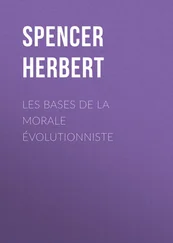Herbert Spencer - First Principles
Здесь есть возможность читать онлайн «Herbert Spencer - First Principles» — ознакомительный отрывок электронной книги совершенно бесплатно, а после прочтения отрывка купить полную версию. В некоторых случаях можно слушать аудио, скачать через торрент в формате fb2 и присутствует краткое содержание. Жанр: Философия, foreign_antique, foreign_prose, на английском языке. Описание произведения, (предисловие) а так же отзывы посетителей доступны на портале библиотеки ЛибКат.
- Название:First Principles
- Автор:
- Жанр:
- Год:неизвестен
- ISBN:нет данных
- Рейтинг книги:5 / 5. Голосов: 1
-
Избранное:Добавить в избранное
- Отзывы:
-
Ваша оценка:
- 100
- 1
- 2
- 3
- 4
- 5
First Principles: краткое содержание, описание и аннотация
Предлагаем к чтению аннотацию, описание, краткое содержание или предисловие (зависит от того, что написал сам автор книги «First Principles»). Если вы не нашли необходимую информацию о книге — напишите в комментариях, мы постараемся отыскать её.
First Principles — читать онлайн ознакомительный отрывок
Ниже представлен текст книги, разбитый по страницам. Система сохранения места последней прочитанной страницы, позволяет с удобством читать онлайн бесплатно книгу «First Principles», без необходимости каждый раз заново искать на чём Вы остановились. Поставьте закладку, и сможете в любой момент перейти на страницу, на которой закончили чтение.
Интервал:
Закладка:
Of Religion then, we must always remember, that amid its many errors and corruptions it has asserted and diffused a supreme verity. From the first, the recognition of this supreme verity, in however imperfect a manner, has been its vital element; and its various defects, once extreme but gradually diminishing, have been so many failures to recognize in full that which it recognized in part. The truly religious element of Religion has always been good; that which has proved untenable in doctrine and vicious in practice, has been its irreligious element; and from this it has been ever undergoing purification.
§ 29. And now observe that all along, the agent which has effected the purification has been Science. We habitually overlook the fact that this has been one of its functions. Religion ignores its immense debt to Science; and Science is scarcely at all conscious how much Religion owes it. Yet it is demonstrable that every step by which Religion has progressed from its first low conception to the comparatively high one it has now reached, Science has helped it, or rather forced it, to take; and that even now, Science is urging further steps in the same direction.
Using the word Science in its true sense, as comprehending all positive and definite knowledge of the order existing among surrounding phenomena, it becomes manifest that from the outset, the discovery of an established order has modified that conception of disorder, or undetermined order, which underlies every superstition. As fast as experience proves that certain familiar changes always happen in the same sequence, there begins to fade from the mind the conception of a special personality to whose variable will they were before ascribed. And when, step by step, accumulating observations do the like with the less familiar changes, a similar modification of belief takes place with respect to them.
While this process seems to those who effect, and those who undergo it, an anti-religious one, it is really the reverse. Instead of the specific comprehensible agency before assigned, there is substituted a less specific and less comprehensible agency; and though this, standing in opposition to the previous one, cannot at first call forth the same feeling, yet, as being less comprehensible, it must eventually call forth this feeling more fully. Take an instance. Of old the Sun was regarded as the chariot of a god, drawn by horses. How far the idea thus grossly expressed, was idealized, we need not inquire. It suffices to remark that this accounting for the apparent motion of the Sun by an agency like certain visible terrestrial agencies, reduced a daily wonder to the level of the commonest intellect. When, many centuries after, Kepler discovered that the planets moved round the Sun in ellipses and described equal areas in equal times, he concluded that in each planet there must exist a spirit to guide its movements. Here we see that with the progress of Science, there had disappeared the idea of a gross mechanical traction, such as was first assigned in the case of the Sun; but that while for this there was substituted an indefinite and less-easily conceivable force, it was still thought needful to assume a special personal agent as a cause of the regular irregularity of motion. When, finally, it was proved that these planetary revolutions with all their variations and disturbances, conformed to one universal law – when the presiding spirits which Kepler conceived were set aside, and the force of gravitation put in their place; the change was really the abolition of an imaginable agency, and the substitution of an unimaginable one. For though the law of gravitation is within our mental grasp, it is impossible to realize in thought the force of gravitation. Newton himself confessed the force of gravitation to be incomprehensible without the intermediation of an ether; and, as we have already seen, (§ 18,) the assumption of an ether does not in the least help us. Thus it is with Science in general. Its progress in grouping particular relations of phenomena under laws, and these special laws under laws more and more general, is of necessity a progress to causes that are more and more abstract. And causes more and more abstract, are of necessity causes less and less conceivable; since the formation of an abstract conception involves the dropping of certain concrete elements of thought. Hence the most abstract conception, to which Science is ever slowly approaching, is one that merges into the inconceivable or unthinkable, by the dropping of all concrete elements of thought. And so is justified the assertion, that the beliefs which Science has forced upon Religion, have been intrinsically more religious than those which they supplanted.
Science however, like Religion, has but very incompletely fulfilled its office. As Religion has fallen short of its function in so far as it has been irreligious; so has Science fallen short of its function in so far as it has been unscientific. Let us note the several parallelisms. In its earlier stages, Science, while it began to teach the constant relations of phenomena, and so discredited the belief in separate personalities as the causes of them, itself substituted the belief in causal agencies which, if not personal, were yet concrete. When certain facts were said to show “Nature’s abhorrence of a vacuum,” when the properties of gold were explained as due to some entity called “aureity,” and when the phenomena of life were attributed to “a vital principle;” there was set up a mode of interpreting the facts, which, while antagonistic to the religious mode, because assigning other agencies, was also unscientific, because it professed to know that about which nothing was known. Having abandoned these metaphysical agencies – having seen that they were not independent existences, but merely special combinations of general causes, Science has more recently ascribed extensive groups of phenomena to electricity, chemical affinity, and other like general powers. But in speaking of these as ultimate and independent entities, Science has preserved substantially the same attitude as before. Accounting thus for all phenomena, those of Life and Thought included, it has not only maintained its seeming antagonism to Religion, by alleging agencies of a radically unlike kind; but, in so far as it has tacitly assumed a knowledge of these agencies, it has continued unscientific. At the present time, however, the most advanced men of science are abandoning these later conceptions, as their predecessors abandoned the earlier ones. Magnetism, heat, light &c, which were awhile since spoken of as so many distinct imponderables, physicists are now beginning to regard as different modes of manifestation of some one universal force; and in so doing are ceasing to think of this force as comprehensible. In each phase of its progress, Science has thus stopped short with superficial solutions – has unscientifically neglected to ask what was the nature of the agents it so familiarly invoked. Though in each succeeding phase it has gone a little deeper, and merged its supposed agents in more general and abstract ones, it has still, as before, rested content with these as if they were ascertained realities. And this, which has all along been the unscientific characteristic of Science, has all along been a part cause of its conflict with Religion.
§ 30. We see then that from the first, the faults of both Religion and Science have been the faults of imperfect development. Originally a mere rudiment, each has been growing into a more complete form; the vice of each has in all times been its incompleteness; the disagreements between them have throughout been nothing more than the consequences of their incompleteness; and as they reach their final forms, they come into entire harmony.
The progress of intelligence has throughout been dual. Though it has not seemed so to those who made it, every step in advance has been a step towards both the natural and the supernatural. The better interpretation of each phenomenon has been, on the one hand, the rejection of a cause that was relatively conceivable in its nature but unknown in the order of its actions, and, on the other hand, the adoption of a cause that was known in the order of its actions but relatively inconceivable in its nature. The first advance out of universal fetishism, manifestly involved the conception of agencies less assimilable to the familiar agencies of men and animals, and therefore less understood; while, at the same time, such newly-conceived agencies in so far as they were distinguished by their uniform effects, were better understood than those they replaced. All subsequent advances display the same double result. Every deeper and more general power arrived at as a cause of phenomena, has been at once less comprehensible than the special ones it superseded, in the sense of being less definitely representable in thought; while it has been more comprehensible in the sense that its actions have been more completely predicable. The progress has thus been as much towards the establishment of a positively unknown as towards the establishment of a positively known. Though as knowledge approaches its culmination, every unaccountable and seemingly supernatural fact, is brought into the category of facts that are accountable or natural; yet, at the same time, all accountable or natural facts are proved to be in their ultimate genesis unaccountable and supernatural. And so there arise two antithetical states of mind, answering to the opposite sides of that existence about which we think. While our consciousness of Nature under the one aspect constitutes Science, our consciousness of it under the other aspect constitutes Religion.
Читать дальшеИнтервал:
Закладка:
Похожие книги на «First Principles»
Представляем Вашему вниманию похожие книги на «First Principles» списком для выбора. Мы отобрали схожую по названию и смыслу литературу в надежде предоставить читателям больше вариантов отыскать новые, интересные, ещё непрочитанные произведения.
Обсуждение, отзывы о книге «First Principles» и просто собственные мнения читателей. Оставьте ваши комментарии, напишите, что Вы думаете о произведении, его смысле или главных героях. Укажите что конкретно понравилось, а что нет, и почему Вы так считаете.












